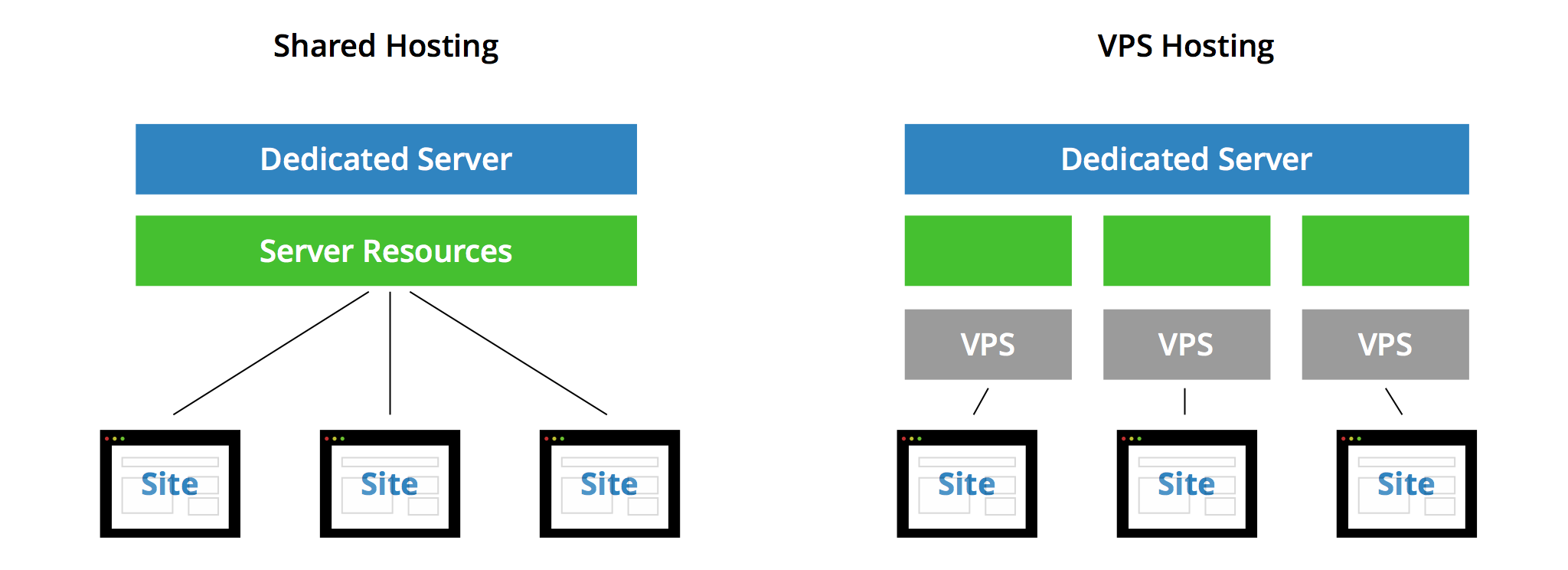Discovering new options to run your business more efficiently is confusing because today’s market dazzles with offers. Online activities are the same, so you need to learn basic information about every type before realizing your work direction. Today, we’ll discover the fundamental features of shared and VPS hosting options and their advantages. To find out more options for data storage and management, visit http://ishosting.com/en/vps.
How Do Both Options Work?
Choosing between options to transfer your work to, it’s crucial to realize the baseline principles of both. Find the main features below.

Explanation of Shared Hosting
Simply put, it suggests different clients use the same server. It’s like living in a dorm, where you have to comply with the rules set to not disturb your neighbors at room, floor, or the whole building. Shared hosting limitations are the same: you follow the rules and updates to continue using the server. And just like in a shared place of living, your private items (here, data) are not as secure as you’d want them to be.
Explanation of VPS Hosting
VPS means the following:
- “V” is for “virtual” – which means remote access;
- “P” is for “personal” – which means only you can access your virtual space;
- “S” is for “server” – a computer that conducts data operations.
Thus, it gives a personalized experience to a client.
Benefits of Shared and VPS Types
Virtual Personal Servers have some benefits compared to public ones. Though, both options do have peculiarities to take profit from.
Benefits of Shared Hosting
This variant can be relevant to some users regarding the following features:
- Shared hosting pricing is affordable to most customers. It results in high demand among starters or growing companies.
- It’s a comfortable space to start from. In the beginning, you don’t have many specific requirements that would demand high-level customization.
- The option allows you to manage the website yourself without hassle. The controlling options are simplified to the maximum.
- Professional server management makes the work simpler and easier for most users that utilize the server. You don’t need to care about maintenance – only comply with general requirements.
Consider that shared hosting resource allocation is not so strong compared to the other types.
Benefits of VPS Hosting
It has much more benefits in terms of scaling the business:
- VPS scalability is conditioned by personalized access to one user, so resource management does not depend on the other users connected to the server. It’s more convenient for clients that need several or more complicated websites organized.
- VPS hosting performance also refers to the server being designed for one client only. Hence, it’s more stable in high-traffic periods.
- Advanced security is better due to customizable protection modifications. Using a firewall, VPN, or other forms of safeguarding is easier.
- It is a golden mean between cheap shared and expensive dedicated hosting. Most users find their perfect solution with VPS.
- It allows using individually preferred software. It also releases you from the necessity to update as the system admins require.
As you can see, VPS gives a more personalized experience in all aspects.
Which One Your Business Needs
To decide, consider the sphere you work in. E.g., VPS is more convenient for e-commerce, while personal blogs or newly-created websites would be better to start from public servers. To find a perfect opportunity, consult the Ishosting managers.
Choosing between possibilities is always easier when you are guided about the fundamentals. To learn more and find where to buy VPS server USA, visit the Ishosting page or contact sales.
Leave a Reply